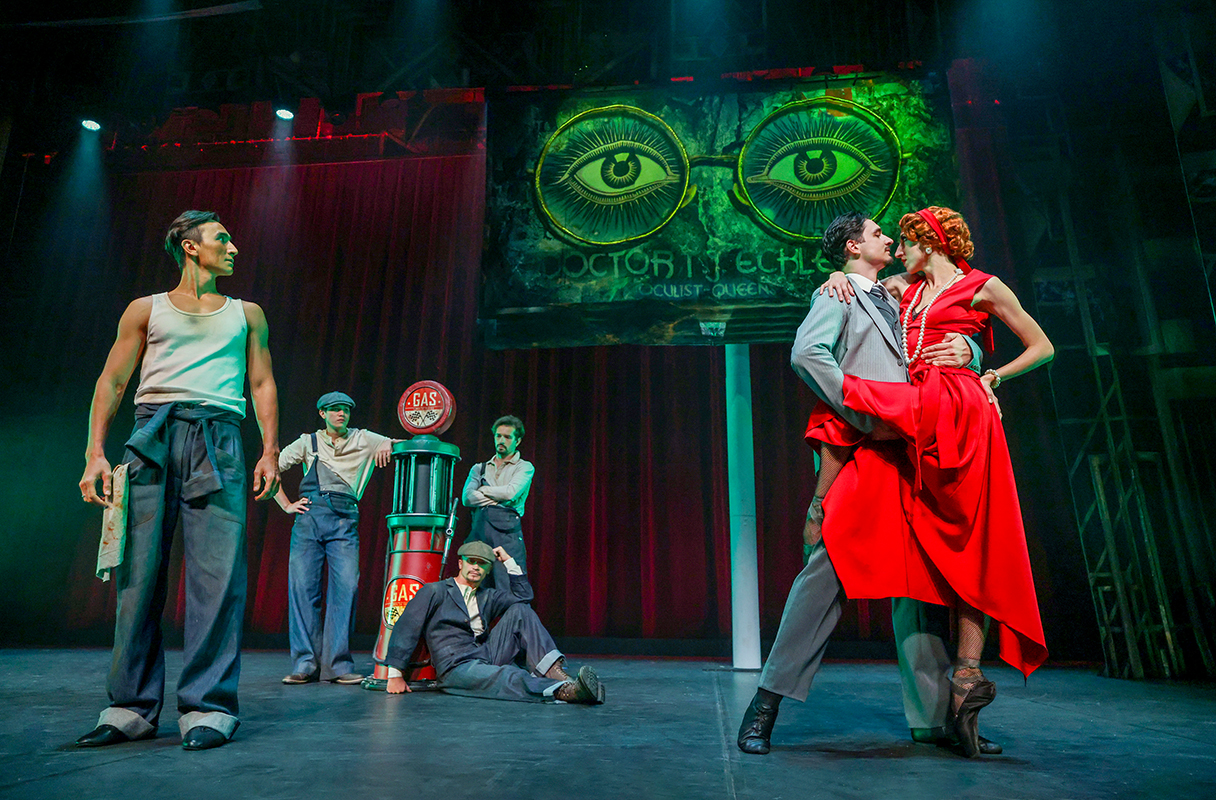Washington Ballet winds down extraordinary online season with two contemporary NextSteps productions
TWB's NextSteps presents two final online offerings: Orpheus and Werner Sonata

“A dancer’s career is so brief,” says Julie Kent, artistic director of The Washington Ballet. “A year in a dancer’s life is a huge percentage of their career versus a musician or an actor or other performing artists. So the urgency to keep going during the pandemic, and for our artists not to lose their hopes and dreams because they can’t get in a studio or they don’t have a performance — well, we couldn’t do that to them.”
As a result, The Washington Ballet, like so many arts organizations nationwide, pivoted to digital, presenting their work on the global arts streaming platform Marquee TV. The benefits have been quantifiable, as the ballet not only has remained connected with local audiences, but has expanded its scope to over two dozen countries around the world.
“We’ve reached people who would never have had the opportunity to get to know The Washington Ballet,” says Kent. “To see who we are, what we’re dancing, what we aspire for, our core values, all the beautiful diversity that we have in our company — obviously racial diversity, but also diversity of movement.”
Still, the last eighteen months or so have not been without challenges for the world-renowned performing arts organization.
“There’s no sugarcoating the hard impact,” says Kent, bluntly. “We went from an almost 15 million dollar budget to a six million dollar budget. We had to permanently eliminate many positions. There’s been a lot of individual sacrifice from all the remaining members of the Washington Ballet. That’s the sobering part.
“For all performing arts organizations, it’s been a devastating year,” she continues. “There was a necessity for us to downsize and survive. My mantra was about always trying to find the opportunities, not just commit artistic suicide and throw in the towel, but to find what was possible, and not focus on what we couldn’t do. It was all about what we could do.”

What they could do is what Kent calls “the aspiring, inspirational part.” During the pandemic, The Washington Ballet managed to produce seven world premieres. Kent urges viewers to watch the entire TWB catalog on Marquee TV ahead of the two final virtual offerings of the season.
“Take a hot summer afternoon and just binge-watch everything that we’ve done,” she says. “None of the pieces are terribly long, so it won’t take all day, just a couple of hours in the afternoon. It’s so inspiring to see the growth and evolution and the caliber of the artistry and the artistic pursuit. It’s constantly being raised. It’s just us pushing forward in a really exciting way.”
The final two entries in the virtual season are part of TWB’s NextSteps series, which celebrates contemporary new works. Werner Sonata, set to the music of Kyle Werner, and choreographed by Silas Farley, was filmed at Wolf Trap as “if it’s a live performance,” says Kent. “We were at Wolf Trap at the small theater in the woods and you could hear the brook along the edge and the wind was blowing. The piece reflects the natural beauty of the surroundings. It’s just an incredible poetic essay.”
By contrast, Orpheus, choreographed by Dana Genshaft, was produced at 4Wall Entertainment’s studios in Columbia, Md., shot against a dark backdrop and punctuated by the stark lighting of Joseph Walls. It features an original score by San Francisco-based composer Kamran Adib that incorporates La Femme’s “Vagues” and Radiohead’s “Pyramid Song.”
“Silas and Dana are both sensitive choreographers who are helping to move this art form forward into the twenty-first century,” says Kent. “They’re wonderful, sympathetic collaborators. It shows the continuous evolution of the Washington Ballet.”
Last weekend, the ballet performed live for the first time in 16 months on stage for an audience of approximately 400 donors at its annual gala. Being in front of a live audience after well over a year was an overwhelming experience for Kent.
“It was so moving — there were lots of lumps in throats,” she says. “But whether they were on the stage or in the audience, every single person there recognized just how remarkable and special it was to be back sharing and inspiring each other as a community. I think it was a huge turning point and a herald of a new chapter for The Washington Ballet and for what we mean to this city. I’m looking forward to seeing how that continues to flourish and grow and resonate in the years to come.”
Werner Sonata and Orpheus premiere on Friday, June 18, on Marquee TV. Viewing plans start at $8.99 a month, and include a free 7-day trial. Visit www.marquee.tv/viewplans for details.
Read More:
Dance Place spotlights innovative dance artists in its inaugural LGBTQ dance festival
Gay Men’s Chorus of Washington toasts its 40th anniversary in emotional video
D.C.’s Big Pride Weekend: Every Way to Celebrate Capital Pride
Support Metro Weekly’s Journalism
These are challenging times for news organizations. And yet it’s crucial we stay active and provide vital resources and information to both our local readers and the world. So won’t you please take a moment and consider supporting Metro Weekly with a membership? For as little as $5 a month, you can help ensure Metro Weekly magazine and MetroWeekly.com remain free, viable resources as we provide the best, most diverse, culturally-resonant LGBTQ coverage in both the D.C. region and around the world. Memberships come with exclusive perks and discounts, your own personal digital delivery of each week’s magazine (and an archive), access to our Member's Lounge when it launches this fall, and exclusive members-only items like Metro Weekly Membership Mugs and Tote Bags! Check out all our membership levels here and please join us today!






















You must be logged in to post a comment.